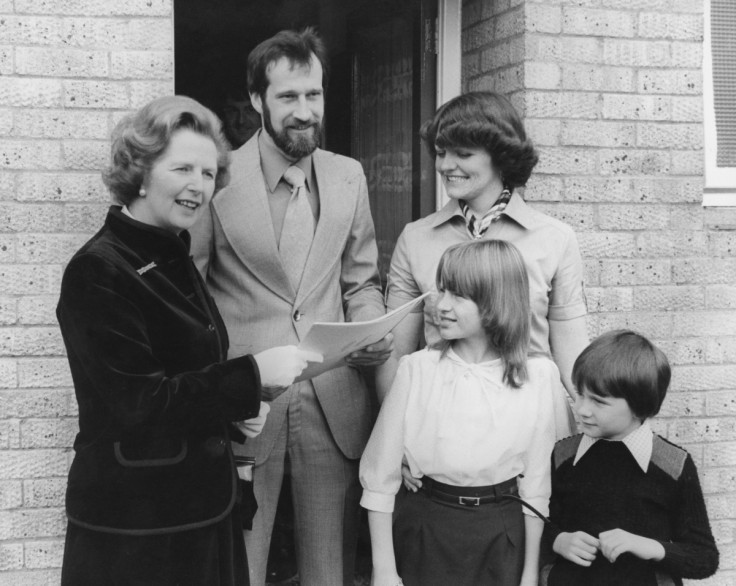Why Scotland Must Not Scrap Margaret Thatcher's Radical 'Right-to-Buy' Policy

There is such a visceral hatred among parts of the UK for the Grand Witch of Conservatism, the late former Prime Minister Margaret Thatcher, that the fury can be blinding as it bubbles up through the body and out of her opponents' bulging bloodshot eyeballs.
While capitalism's banshee can be blamed for cursing us with a number of today's maladies, Thatcher does not bear the responsibility for everything.
So Scottish Conservatives' attacks of political dogmatism on the Scottish National Party (SNP) government in Holyrood hold weight, as it permanently scraps one of Thatcher's hallmark housing policies – the right-to-buy.
The SNP and its supporters say by ditching the policy they will keep thousands of homes every year within the social sector, rather than seeing them sold off to tenants. They point the finger at right-to-buy as a central reason for the shortage.
Right-to-buy was introduced under the Housing Act 1980, just one year in to Thatcher's prime ministership, as part of her vision for a property-owning democracy.
It allowed council housing tenants the opportunity to buy their homes from the local authority, at a discount, bringing home ownership into the reach of millions of households across the country.
The policy was radical and a success. Home ownership levels have rocketed since and in Scotland alone around half a million publicly-owned dwellings have been sold to their tenants.
But we are now in the middle of a social housing crisis. There are 595,554 social dwellings in Scotland, but 185,000 still on the waiting list for a property.
It's fair to say that the right-to-buy scheme has contributed to this problem. But the policy itself is not to blame for the creation of it.
The real failure is that of successive governments in Westminster to build enough social housing to cope with the demands of a rising population.
They failed even to replace the stock that was sold off in an incredible lack of foresight. It wouldn't have taken a Nostradamus to predict what was going to happen.
Therefore the answer is not to scrap right-to-buy and damn those who would benefit to a lifetime of rent slavery, but to build much more social housing.
The benefits of home ownership are manifold and shouldn't be limited to those lucky enough – and, unfortunately, so much of the housing market success these days rests on luck – to be able to scrape themselves out of the renting trap.
Home ownership allows someone to acquire a large asset, the biggest they'll probably ever own. It can serve as a pension, a financial safety net, or collateral. It is something that is tangibly yours. You can alter it, add to it, and will be more inclined to maintain it properly.
It also means money that would be lost to the rent collector is hoarded in the bricks and mortar of your home.
By all means have the debate about whether there should be a temporary stop on right-to-buy while more social housing goes up. By all means argue about the level of discount council housing tenants should be given – is 70% too much? – and the cost to the taxpayer in selling off a public asset too cheaply.
And, if you really want, have an abstract debate about the flaws of a property-owning democracy.
But don't erroneously pin the blame for a social housing shortage on a policy that has given the gift of property ownership to many people on low incomes for who it would otherwise be unrealisable.
The poor are entitled to own their own homes too – and right-to-buy helps them do it.
© Copyright IBTimes 2025. All rights reserved.






















